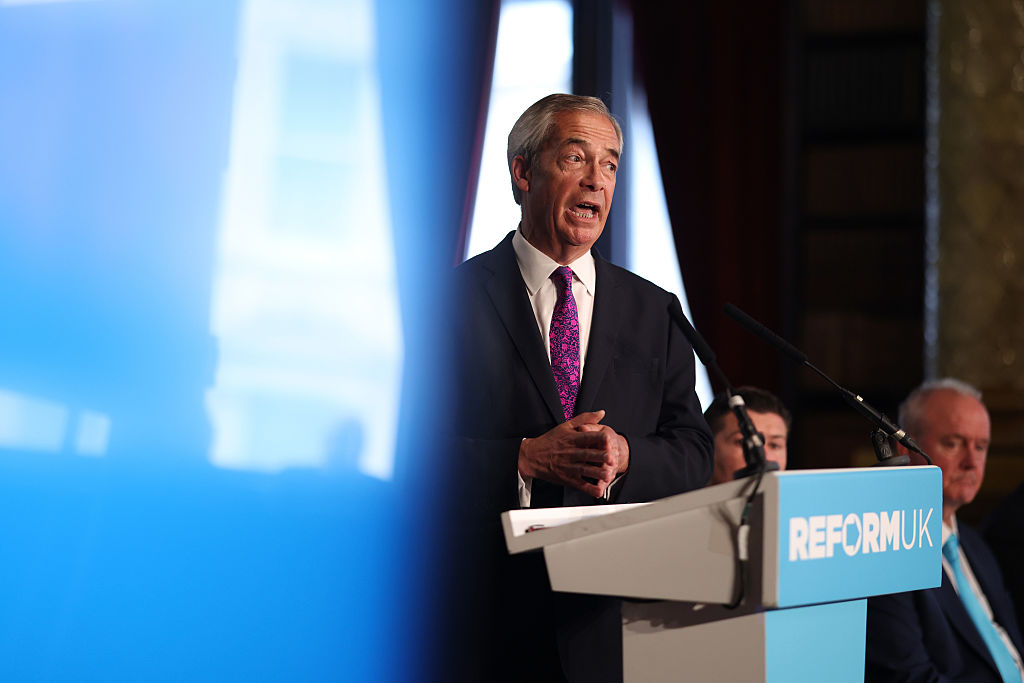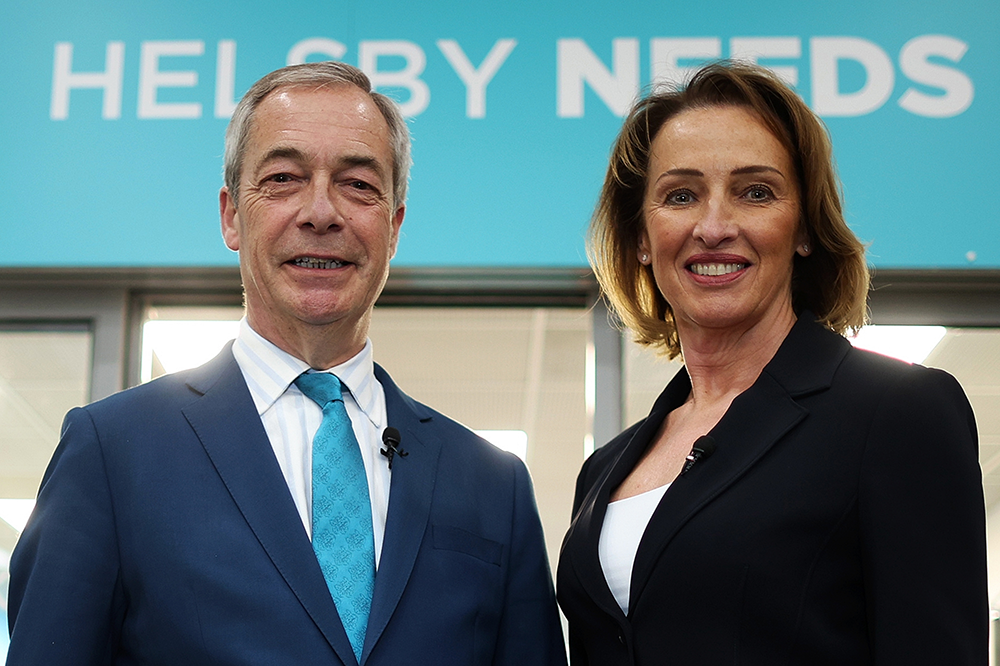Thomas Kerr made headlines when he – as The Spectator exclusively revealed – defected from the Conservatives to Nigel Farage’s Reform in January. Kerr was seen as a rising star in the Scottish Conservative party and was selected in 2023 to contest the Rutherglen and Hamilton West Westminster by-election after the SNP’s Margaret Ferrier was suspended over breaking Covid rules. He was unsuccessful but rose through the ranks to become the Tory leader on Glasgow City Council before he left for more turquoise pastures at Reform. A week from the Hamilton, Larkhall and Stonehouse by-election, in which his party is projected to do well, Kerr speaks to The Spectator about Reform’s growing popularity north of the border in another episode of a special Coffee House Shots series ahead of the 2026 Holyrood elections.
Thomas Kerr reveals that one of the first policies Reform will announce in Scotland will be about reforming Holyrood
As I wrote in January, Reform has been enjoying a surge in its Scottish support despite having no party leader. It claims to have 10,500 members – and says it is about 1,500 members away from catching up to Scottish Labour. More recent polling by Norstat and Survation have suggested the party could elect 15 MSPs at the next election while one survey even suggested the insurgent group could become the official opposition to the SNP next year. What do Farage’s men north of the border see as being the reason for this? ‘For a long time in Scotland, there has been an atmosphere of people feeling forgotten, left-behind and scunnered – that famous Scottish word that I keep using,’ Kerr says, and laughs. (It translates to ‘fed up’.)
Farage’s party has demonstrated its success in campaigning on Britain’s borders, with YouGov polling conducted earlier this month revealing that one in two Brits now view immigration as the most important issue facing the country. But what else is Reform offering to people north of the border? ‘I don’t make any bones about the fact that we are quite light on policy,’ Kerr admits. ‘We’re a new political party.’
He points to Reform’s stance on what the party’s deputy leader dubbed ‘net stupid zero’ earlier this year (their policy is to drill more) and the party’s promises to lower taxes and better fund public services. The party’s stance on the health service has ruffled feathers, with fears about privatisation. (Tice assured me earlier in the month that Reform would not fully privatise the service – although said the party wants to lean more heavily on the independent sector to ease pressures on the health service.) Kerr is also quick to jump to culture war issues, pledging to ‘end wokery in our schools,’ and adds: ‘We’ve been able to define a woman for years without having the Supreme Court tell us what it is.’
What of Reform’s stance on devolution in Scotland? ‘We fully back the Scottish parliament,’ Kerr says immediately. ‘The idea that Reform would roll back devolution is just not true.’ But, he reveals, one of the first big policies the party will announce in Scotland will be how it would reform Holyrood:
Do we look at the committee systems? Do we look at how the presiding officers are elected? Do we look at the makeup of the Scottish parliament? That will be a big piece of work that Reform is currently taking part in. That will be our first big policy announcement: how we try and reform Scotland is looking at the Scottish parliament itself.
The institution has come under criticism in recent years for holding too many debates on issues like independence, gender or international issues in place of passing much legislation. ‘We have a parliament now that debates Gaza and the Iraq war,’ Kerr adds, ‘which has nothing to do with them whatsoever. I’m not saying they’re not important issues – they absolutely are – but why are they spending time focused on that?’
And on the subject of constitutional issues, Kerr – a self-confessed Remain voter – makes the case for why Reform is in Scotland transcending the usual in-out divisions, attracting both those who wanted to remain as part of the European Union and those who backed an independent Scotland. ‘It’s time to now focus on what people are facing here and now. They’re not interested in constitutional arguments or debates,’ he explains. ‘Scotland’s politicians are obsessed with the past and I think that’s why they’re struggling so much to try and lay a glove on us.’ He goes on:
And, by the way, me saying this will not change the dynamics of Scottish politics. Russell Findlay will fight a campaign to stop indyref2. Anas Sarwar will fight a campaign because Nigel Farage is a big bad bogeyman. John Swinney will say ‘vote for me to get us back in the EU’. These people are incapable of thinking about the big vision for Scotland. They’re stuck in constant political spins about what it is their advisers tell them – and I think that is why Reform is doing so well.
Kerr is a family man with a two-year-old, but he is also clearly an ambitious local politician and has been pipped by some as Scotland’s first leader of Reform, if the party were to win seats in Holyrood. He confirms that his party will stand candidates in every seat in Scotland, with Reform’s selection process to continue throughout the summer. Though he has not yet declared whether he will stand in 2026, Kerr gives us a strong hint: ‘I’m being totally honest with people, I’m not fully decided yet. If I think I can be an asset to the party, if I think I can do what I’ve always wanted to do in politics, which is fight for my community, then absolutely I’ll do it.’








Comments